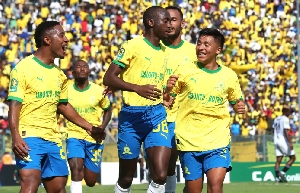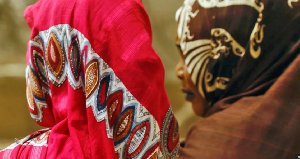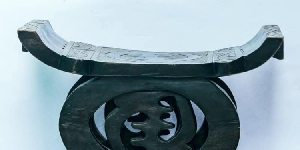Mrs. Dzifa Attivor, the recently dismissed Minister of Transportation – she had allegedly been pressured to tender her resignation by Mr. Julius Debrah, the President’s Chief-of-Staff – has been attempting to defend her ethnocentric remarks, regarding the purportedly virulent hostility of New Patriotic Party (NPP) governments towards cabinet appointees of Ewe ethnicity (See “Dzifa Attivor Defends ‘Tribal’ Comments” Graphic.com.gh / Ghanaweb.com 4/28/16). Predictably, such farcical and factually mendacious defensiveness is not working. At best, it has only succeeded in putting the Mahama-led National Democratic Congress (NDC) in a very bad light as an executive protector of criminally culpable Ewes in government.
On the campaign trail in a village called Wodoaba, in the Ketu-South Constituency in the Volta Region, Mrs. Attivor was widely reported to have made the following quite damning statement to some NDC supporters and sympathizers: “I want to remind you that it is your vote that will determine if Fifi Kwetey and I will be prosecuted and put behind bars or not.” Now, this statement is loaded with quite a lot of deleterious implications which, had Mrs. Attivor pondered the same critically and carefully, she might not have made it. For starters, her remarks insult the intelligence of Anlo-Ewes, in particular, but Ewes in general, for Mrs. Attivor to perceive them as an unconscionable group of people who have absolutely no salutary mental capacity to fully appreciate patent acts of executive criminality, especially in regard to crimes committed by Anlo-Ewe cabinet appointees in the Mahama government.
And paradoxically, this tribal fear monger may have a point. The massive supportive reaction with which the people of Ho, the Volta regional capital, greeted the Woyome Heist shockingly but quite understandably underscored the all-too-well-known fact that Anlo-Ewes may well be psychologically located on a different moral and civic wavelength from the rest of the Ghanaian citizenry. Then there is also the implicit Attivor accusation that Mr. Fiifi Kwetey, the former Deputy Finance Minister and presently Minister for Agriculture, may be forensically sustainably implicated in either the judicially culpable crime of causing financial loss to the state, or simply lining up his pocket with the people’s money. Mrs. Attivor also exhibits gross ignorance when she vacuously alleges that traditionally there has been no love lost between Volta natives and key operatives of the erstwhile UP (or the United Party), led by Drs. Danquah and Busia, and Mr. Dombo.
Mrs. Attivor may do herself great good to revisit the transitional and immediate postcolonial history of Ghana in order to draw the most appropriate conclusions, as well as make herself far less of the laughing stock that she has become in recent weeks and months. Of course, we all know what her oblique reference to the UP Tradition is about, namely, the grossly misreferenced and misquoted Sallah Case in which some essentially pork-barrel Convention People’s Party’s political appointees were rightfully dismissed from the payroll of the State by Prime Minister Kofi Abrefa Busia. Mrs. Attivor would also do herself great good by revisiting the Anlo-Ewe vote in the 1956 UN-sponsored Plebiscite in order to draw the most appropriate conclusions. The fact of the matter is that other than a handful of Anlo-Ewe associates of who trucked with then-Prime Minister Kwame Nkrumah, for the most part, Anlo-Ewes like Dr. R. E. G. Armattoe were virulently opposed to the incorporation of Trans-Volta Togoland in the erstwhile Gold Coast.
There is also an extensive corpus of literature on the so-called Sallah Case; and so I find it absolutely unnecessary to belabor the same here. Suffice it to observe, however, that the Sallah Affair was gravely tainted by a conflict of interest on the part of one of the sitting judges with familial connection to the lead plaintiff of the class-action suit who was not honorable enough to recuse himself from the case, thus giving the unmistakable appearance of an epic judicial travesty. Indeed, it was this often deliberately and conveniently ignored aspect of the case by his visceral Anlo-Ewe detractors, which prompted Prime Minister Busia to flatly reject a court order to reinstate the dismissed Convention People’s Party pork-barrel employees.
Mrs. Attivor also claims that her decision to whip up tribal sentiments was aimed at “protecting the dignity and common identity” of the Anlo-Ewe people. This is inexcusably absurd because even Chairman Jerry John Rawlings, the foremost champion of Anlo-Ewe tribal-nationalism, does not find Mrs. Attivor’s assertion to be either amusing or credible, or even one that redounds to the dignity of the Anlo-Ewe people. Indeed, even the man who once grotesquely accused President John Agyekum-Kufuor of imposing Asante suzerainty on Anlo-Ewes, in the matter of the 2008 Anloga chieftaincy hostilities, has roundly condemned Mrs. Attivor for flagrantly presuming to impugn the statesmanship credentials of Nana Akufo-Addo, the 2016 presidential candidate of Ghana’s main opposition New Patriotic Party. Chairman Rawlings has even called on some prominent Anlo-Ewe citizens, such as Mr. Nutifafa Kuenyehia, to add their respectable voices to the round public condemnation of Mrs. Attivor.
And so, finally, Ghanaians may be healthily approaching the enlightened status of a cohesive sense of a common national identity, irrespective of ethnicity or creed.
*Visit my blog at: kwameokoampaahoofe.wordpress.com Ghanaffairs
Opinions of Tuesday, 24 May 2016
Columnist: Okoampa-Ahoofe, Kwame
Dzifa Attivor chases shadows
Entertainment













